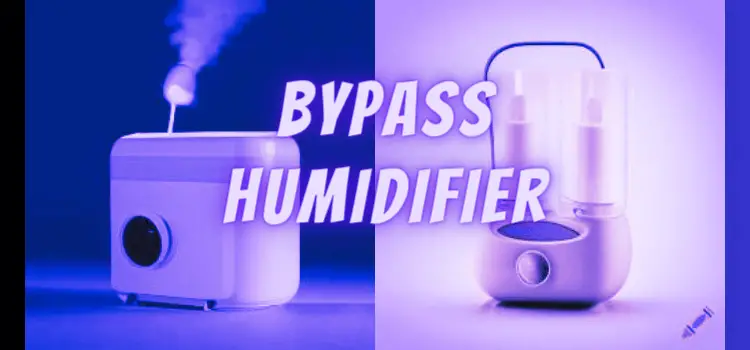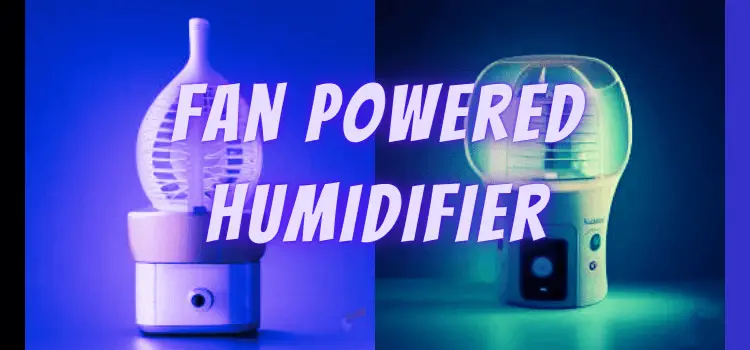Maintaining the right level of humidity in your home is essential for your well-being and the health of your living environment. Insufficient humidity can lead to discomfort and health issues, while excess humidity can promote mold growth and structural damage. To strike the perfect balance, many homeowners turn to humidifiers. In this article, we will delve into the comparison between bypass humidifiers vs fan-powered humidifiers, shedding light on which one is the better choice for your specific needs.
Bypass Humidifier vs Fan Powered
Bypass Humidifier: Unveiling the Basics
Bypass humidifiers are a popular choice for homeowners seeking to add moisture to their indoor air. There are also other humidifiers, like evaporative humidifiers which offer several advantages, such as being energy-efficient, budget-friendly, and providing a natural and comfortable level of humidity. Here’s what you need to know:

How It Works: Bypass humidifiers work by using the furnace blower motor to push air through a water panel, adding moisture to the air. The humidified air is then distributed throughout
the house through the existing ductwork. Bypass humidifiers are typically less expensive than fan-powered humidifiers and are more energy-efficient since they do not require a separate power source. However, they can only operate when the furnace is running, which may not be ideal for those who do not use their furnace frequently.Installation: These humidifiers are typically installed directly into your heating or cooling system’s ductwork. They are known for their compatibility with forced-air heating systems.
PROS
CONS
Fan-Powered Humidifier: A Closer Look
Fan-powered humidifiers, on the other hand, have their own fan and motor that work independently of the furnace. They use a similar water panel system to add moisture to the air, but the fan helps to distribute the humidified air more quickly and efficiently throughout the house. Fan-powered humidifiers are generally more expensive than bypass humidifiers and require a separate power source. However, they can operate independently of the furnace, which may be more convenient for some users.

How It Works: Fan-powered humidifiers incorporate a fan that blows air over a water panel, evaporating the moisture into the air. They are generally faster at increasing humidity levels compared to bypass humidifiers.
Installation: These units are typically mounted on a plenum or duct in your HVAC system. They require an electrical connection for the fan.
PROS
CONS
Which One Should You Choose?
There is also a popular humidifier, which is filter and no-filter humidifiers. Each type of humidifier has its advantages and disadvantages, so it’s essential to consider your individual requirements and circumstances when selecting the right one for your home. The decision between a bypass humidifier vs a fan-powered humidifier depends on various factors:
Home Size: For smaller homes, a bypass humidifier may suffice, while larger homes may benefit from the rapid humidification provided by a fan-powered unit.
Budget: Consider your budget, including both the initial cost of purchase and long-term operating expenses. Bypass humidifiers are generally more cost-effective.
Maintenance: Evaluate how much time you can dedicate to maintenance. Bypass humidifiers are known for their simplicity and ease of maintenance.
Speed: If you want quick results and don’t mind higher energy consumption, a fan-powered humidifier might be the right choice.
Noise Level
Bypass humidifiers are generally quieter than fan-powered humidifiers because they do not have their own fan. However, the noise level can still vary depending on the specific model and installation location. Fan-powered humidifiers may produce more noise due to their fan, but the noise level can be minimized with proper installation and maintenance.
Conclusion
In the debate of bypass humidifier vs fan-powered humidifier, there is no one-size-fits-all answer. It’s essential to assess your unique requirements and budget before making a decision. Bypass humidifiers are cost-effective and easy to maintain, making them suitable for smaller homes. On the other hand, if you have a larger home and desire rapid humidification, a fan-powered humidifier may be the better option despite its higher energy consumption. Whichever you choose, maintaining the right humidity levels will enhance your comfort and well-being.
Remember that proper installation and maintenance are key to the efficient operation of either type of humidifier. Consult with a professional to determine the best choice for your home and enjoy the benefits of improved indoor air quality.
FAQs of Bypass Humidifier vs Fan Powered
While they are more commonly used in colder climates, humidifiers can also be beneficial in hot, dry climates to improve indoor air quality.
No, bypass humidifiers are generally quiet during operation, ensuring they don’t disturb your daily activities or sleep.
Yes, fan-powered humidifiers tend to consume more electricity due to the operation of the built-in fan. Consider this when evaluating your energy costs.
Yes, both bypass and fan-powered humidifiers can be controlled using a humidistat, allowing you to set and maintain your desired humidity levels.
Yes, maintaining proper indoor humidity levels can alleviate symptoms associated with dry skin, allergies, and respiratory problems.
As an Amazon Associate, I earn from qualifying purchases
Leave a Reply